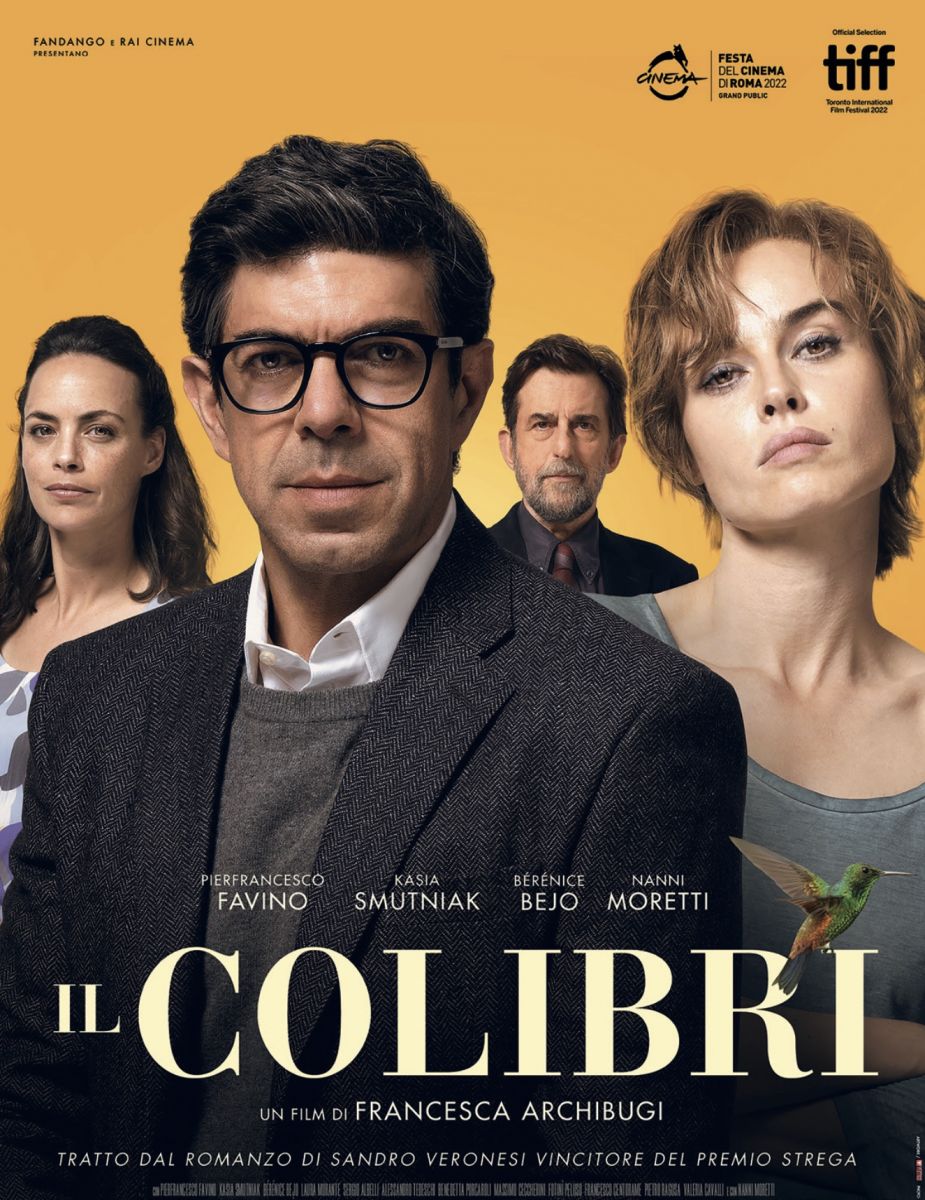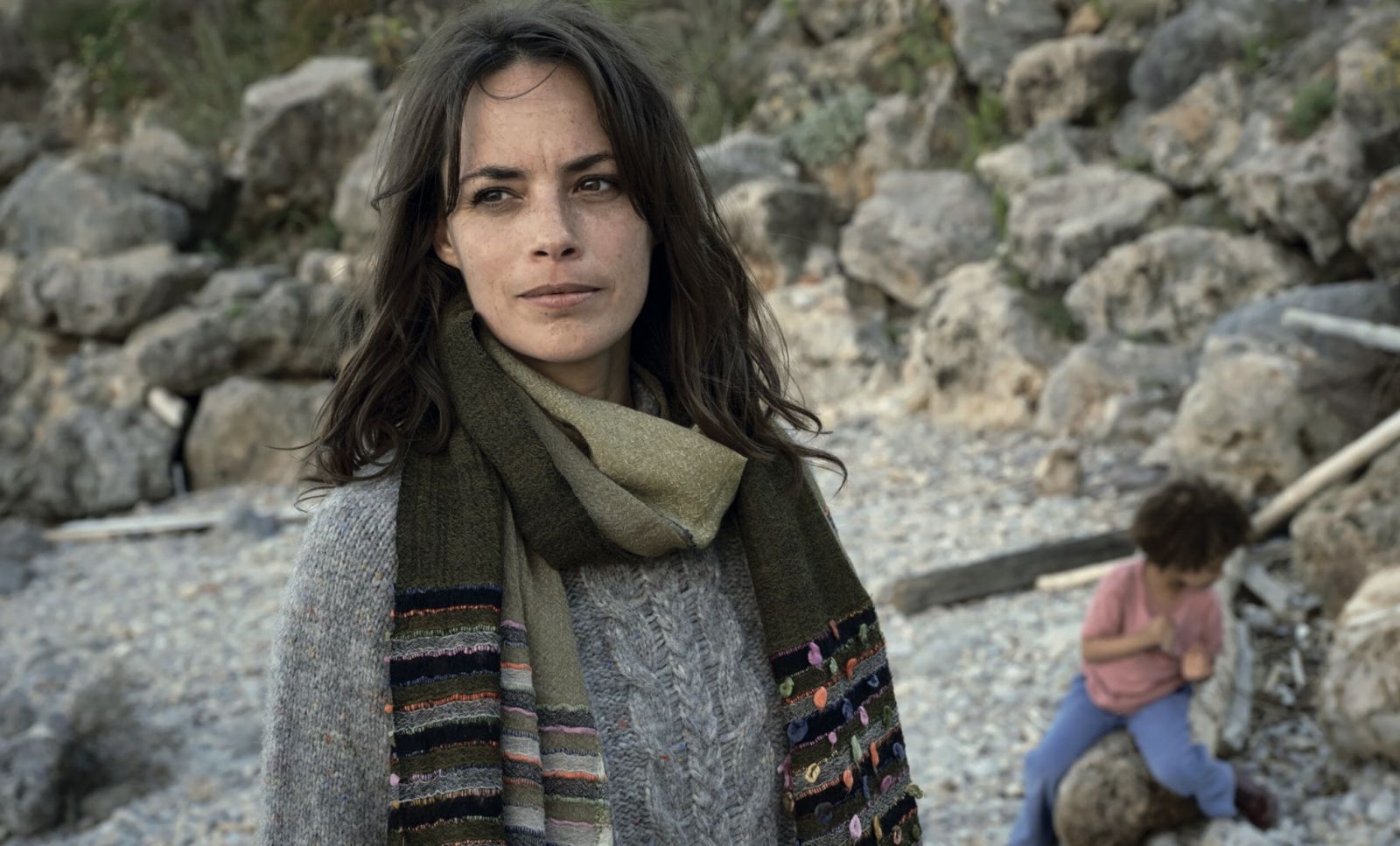The opening film of the 2022 Rome Film Festival, directed by Francesca Archibugi and based on the novel of the same name by Sandro Veronesi, winner of the 2020 Strega Prize, is certainly of great emotional impact and aesthetic commitment. Its complexity is, however, second to its intricate unfolding. The audience finds itself having to unravel a temporal skein that continually turns in on itself, with some difficulty in discerning its planes, the dense web of interpersonal relationships and events, the often obscure “reason” of feelings. Marco Carrera is Pier Francesco Favino. It is not only the affirmation of the protagonist-actor pairing.
One witnesses a casting that goes beyond the frequent ability to identify with a character. In an interview available on the Web, Favino said that as a child he was called by the name of a bird: woodpecker. Probably not just an accident, but a genuine consonance, an identity that the actor was able to render naturally, as if he had been called upon to play himself. And this is where, in my opinion, a second discrepancy comes into play that stands in the way of the complete success of the film. Or, perhaps, he succeeds in making the matter even more problematic. I am referring to the performance of Nanni Moretti, who plays the role of psychoanalyst Daniele Carradori. I found it difficult to get in tune with the actor’s vocal expressiveness. Rather than impersonally, the words come out of his mouth in a tone between hieratic and pedantic. His voice sounds unnatural, contrived, stilted, clumsy, lacking the empathy that even his gaze shows.
 Just as there are some people who are not photogenic, so, perhaps, there are some who are incapable–perhaps out of modesty–of expressing their inner emotion through their voice, and Nanni Moretti seems to me to be one of them. The character he plays fully and correctly adheres to the existential vicissitude of the protagonist, is with him and for him, but his voice seems to contradict him, he withdraws, goes elsewhere. Unless what has just been written adheres to the literary character of Daniele Carradori, whom I do not know as I have not read the novel. Marco Carrera is the hummingbird–his nickname since childhood–who never seemed to grow up. An affectionate and loving term that has its equivalent in another, perhaps more frequently used term: wren. The term sticks with him implicitly. The protagonist’s entire existence proves its suitability. It is difficult to concisely summarize what is happening on the screen. Marco Carrera goes through and reviews the events of his life at every moment, in a frenzied back-and-forth in which it is difficult to understand if and when there is a here and now in which his ramblings stop. Who knows, perhaps this is the life of many, if not all, but such an observation fails to facilitate the task of the viewer. It is the existence of others–of another–that flows on the screen and that mechanism, although shared, is not enough to facilitate the task of the viewer, who runs the risk of having to give in to the impossibility of understanding.
Just as there are some people who are not photogenic, so, perhaps, there are some who are incapable–perhaps out of modesty–of expressing their inner emotion through their voice, and Nanni Moretti seems to me to be one of them. The character he plays fully and correctly adheres to the existential vicissitude of the protagonist, is with him and for him, but his voice seems to contradict him, he withdraws, goes elsewhere. Unless what has just been written adheres to the literary character of Daniele Carradori, whom I do not know as I have not read the novel. Marco Carrera is the hummingbird–his nickname since childhood–who never seemed to grow up. An affectionate and loving term that has its equivalent in another, perhaps more frequently used term: wren. The term sticks with him implicitly. The protagonist’s entire existence proves its suitability. It is difficult to concisely summarize what is happening on the screen. Marco Carrera goes through and reviews the events of his life at every moment, in a frenzied back-and-forth in which it is difficult to understand if and when there is a here and now in which his ramblings stop. Who knows, perhaps this is the life of many, if not all, but such an observation fails to facilitate the task of the viewer. It is the existence of others–of another–that flows on the screen and that mechanism, although shared, is not enough to facilitate the task of the viewer, who runs the risk of having to give in to the impossibility of understanding.
 That is, at least, until the final scene when the protagonist’s memories are now lacking any future perspective. He has come to the end and can therefore rest, ceasing to relive his existence incessantly. One immediately feels sympathy for this outsider, who struggles to live according to contemporary patterns, full of abuse, prevarication, deception, betrayal, clichés, and priorities that he does not understand or share. His life flows between mournful events that mark him forever, between delicate encounters whose effects will last until the end, between events that are missed by the blink of an eye and between connections that are impossible to anticipate. The Hummingbird is able to get the better of everything and everyone, without betraying people and respecting their feelings. However, perhaps unintentionally, one sometimes ends up overwhelming him, while his inner immobility seems to be at the expense of his own feelings, which he perhaps does not experience fully, at least when analyzed by an outside eye. Surrounded by those he loves (or didn’t), by those he hates (or didn’t), by the truest affections as well as the darkest ones, Marco Carrera closes his existence at peace with himself, with serenity, helped by those who are able to support his final journey. Other notable characters are played by Laura Morante (the mother), Kasia Smutniak (the wife), Bérénice Bejo (the unfulfilled love of his life). Finally, the importance of a solid screenplay and a problematic but successful editing is of note.
That is, at least, until the final scene when the protagonist’s memories are now lacking any future perspective. He has come to the end and can therefore rest, ceasing to relive his existence incessantly. One immediately feels sympathy for this outsider, who struggles to live according to contemporary patterns, full of abuse, prevarication, deception, betrayal, clichés, and priorities that he does not understand or share. His life flows between mournful events that mark him forever, between delicate encounters whose effects will last until the end, between events that are missed by the blink of an eye and between connections that are impossible to anticipate. The Hummingbird is able to get the better of everything and everyone, without betraying people and respecting their feelings. However, perhaps unintentionally, one sometimes ends up overwhelming him, while his inner immobility seems to be at the expense of his own feelings, which he perhaps does not experience fully, at least when analyzed by an outside eye. Surrounded by those he loves (or didn’t), by those he hates (or didn’t), by the truest affections as well as the darkest ones, Marco Carrera closes his existence at peace with himself, with serenity, helped by those who are able to support his final journey. Other notable characters are played by Laura Morante (the mother), Kasia Smutniak (the wife), Bérénice Bejo (the unfulfilled love of his life). Finally, the importance of a solid screenplay and a problematic but successful editing is of note.





.png)